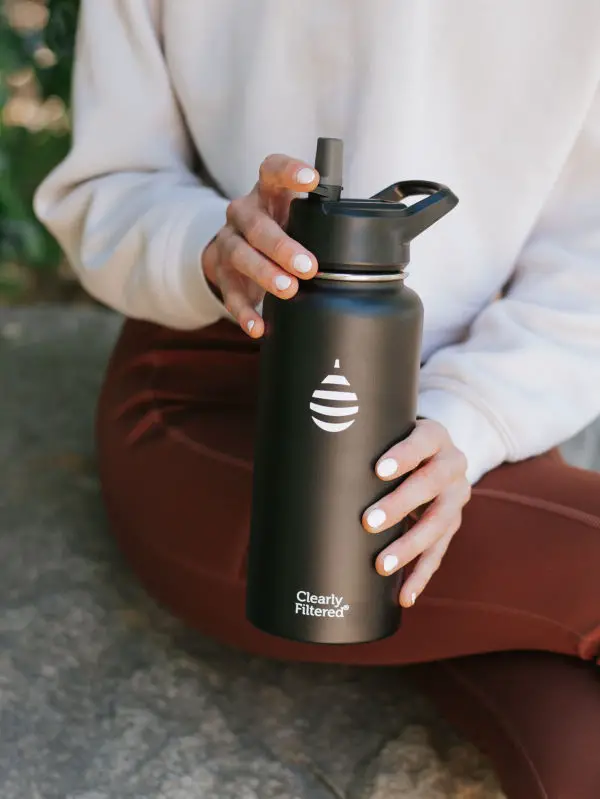Coconut water has gained immense popularity in recent years and is renowned for its nutritional value and potential health benefits. However, the fructose content in coconut water can be of concern to some.
The 12 g of total sugar in a 300 ml bottle of coconut water is about 2.7% fructose.
In this article, we’ll delve into the fructose levels in coconut water, how it changes with the age of the coconut, levels in popular brands, and how it compares to soda and fruit. We’ll also explore if fructose in coconut water is bad for you, especially for those with fructose malabsorption issues.
Coconut Water: A Nutrient-Packed Refreshment
Before we dive into the details of fructose in coconut water, let’s understand its composition. Coconut water is extracted from the inner part of coconut fruits and is distinct from coconut milk, which is derived from the grated fresh kernel. This clear liquid, often referred to as coconut juice, is considered a natural functional drink due to its unique characteristics.
Coconut water is celebrated for its sugar content and mineral composition, making it an ideal rehydrating beverage, especially after physical activity. It contains three primary sugars: sucrose, glucose, and fructose.
However, it’s the fructose component that we’ll be focusing on in this article.
Fructose in Coconut Water: How It Changes?

The fructose levels in coconut water aren’t fixed; they can vary. A significant factor is the coconut’s age when it’s harvested and turned into coconut water. Young, immature coconuts tend to pack more fructose and glucose compared to sucrose. As the coconut matures, the sucrose content rises while fructose and glucose levels drop. Coconut water is typically sourced from younger coconuts.
Fructose in Fresh Coconut Water
In practical terms, if you’re buying a fresh coconut and are concerned about fructose, choosing a slightly mature one (with a more yellow husk, rather than green) may be a better option. Young green coconuts are sweeter but contain more fructose, whereas mature coconuts have less fructose.
Fructose Levels in Popular Coconut Water Brands
The amount of fructose in coconut water is relatively low. Fructose accounts for about 30% of the total sugars in coconut water. This might sound like a lot, but considering that coconut water generally has only about 4-6% total sugar, the amount of fructose is relatively small.
When it comes to commercial brands of coconut water, the total sugar content can vary. Popular brands such as VitaCoco coconut water, Happy Belly coconut water, and Zirco 100% coconut water contain approximately 10 grams of total sugars per cup (about 236 ml or 8 fl. oz).
So, for every bottle of coconut water you drink, which generally comes in 300 ml (10 fl. oz) bottles, you’re getting roughly 1.8 to 3.6 grams of fructose.
Putting Coconut Water Fructose in Perspective
Compared to Soda
To give you a sense of scale, let’s compare coconut water to soda. High-fructose corn syrup (HFCS), a common additive in sugary sodas, is about 55% fructose.
A 2014 study published in the Journal of Nutrition, showed that fructose was the primary sugar in some popular sodas like Pepsi, Coca-Cola, Sprite, Dr. Pepper, Mountain Dew, Arizona Iced Tea, and Mug Root Beer. Among these, Sprite, Dr. Pepper, and Pepsi claimed the top spots, with fructose making up over 60% of their total sugar content.
On average, these sodas contain about 10.8% total sugars. So, a 300 ml bottle of soda delivers around 19 grams of fructose. That’s like sipping down five to ten 300 ml bottles of coconut water!
Compared to Fruit
Now, how does coconut water stack up against fruits?
The fructose content in common fruits like apples, bananas, and oranges varies. A medium-sized apple (about 182 grams) contains around 8-9 grams of fructose. A medium banana (about 118 grams) has about 7-7.5 grams of fructose, while a medium orange (around 130-150 grams) holds roughly 6-6.5 grams.
Coconut water has a relatively low fructose content compared to these fruits.
Is Fructose in Coconut Water Bad for You?
You might wonder if the fructose in coconut water is a problem. Well, it’s not quite like the fructose in sugary sodas.
In coconut water, fructose teams up with glucose to make something called sucrose. Sucrose is just sugar from plants. Back in the day, people got about 15 grams of fructose a day, mostly from fruits and veggies. Now, we’re up to 55 grams a day, and teens are even higher at 73 grams! On average, more than 10% of the calories that Americans eat every day come from fructose. That’s a lot more fructose.
This increase in fructose consumption has raised concerns about its impact on health, as too much fructose can be linked to health issues.
Here’s what happens with fructose: It mostly hangs out in your liver. And that’s where things can get tricky. Too much fructose can mess up your liver, making it store fat and not work so well. That can lead to problems like fatty liver disease and even diabetes.
The fructose content in coconut water is relatively low compared to sodas and sugary snacks. So, including coconut water in a balanced diet is just fine. Remember, it’s all about balance and keeping an eye on your sugar intake, whether it’s from coconut water or other sources.
Fructose Malabsorption: What You Need to Know
Now, let’s shift our focus to fructose malabsorption. This is a digestive disorder where the small intestine struggles to absorb fructose efficiently. When someone with fructose malabsorption consumes foods or drinks high in fructose, it can lead to symptoms like bloating, gas, abdominal pain, diarrhea, and nausea.
There are two pathways for fructose absorption in the intestine. The first is where fructose is absorbed freely, and in people with fructose malabsorption, this pathway is impaired. The second pathway involves glucose carrying fructose across the intestine. This second pathway still works for those with fructose malabsorption, so they can consume foods with fructose as long as there are equal or more amounts of glucose.
As with any dietary concerns, it’s essential to consult with a healthcare provider or dietitian for personalized advice, especially if you have fructose malabsorption or specific dietary restrictions. In most cases, coconut water can be a tasty and refreshing addition to a balanced diet for individuals of all ages, including health-conscious teenagers.
The Best Water Filter Bottle We’ve Ever Used
Clearly Filtered | Stainless Steel Filter Bottles
We really love these filter bottles for keeping your drinks cool and contaminant free! They remove 99.9% of over 220 contaminants and use BPA-free plastics and double-walled stainless steel to produce some awesome looking designs with numerous bottle sizes for every situation. You can find them at Clearlyfiltered.com

